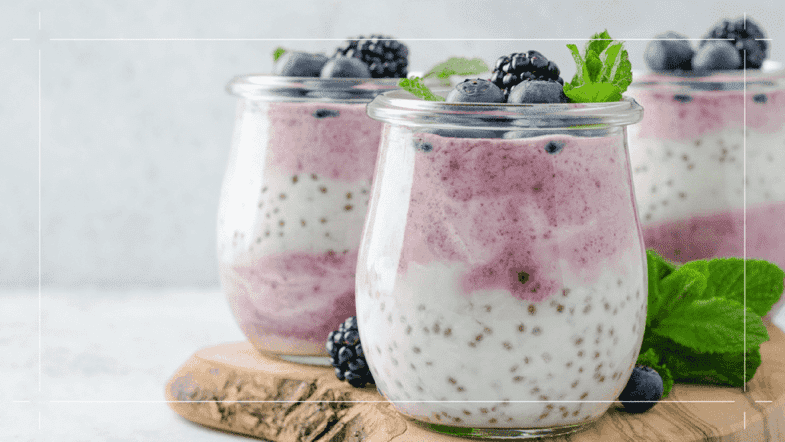Discover how a healthy diet can help you achieve longevity. Learn which foods and nutrition patterns promote a longer, healthier life and practical tips to make your daily diet serve your well-being.
Living a long and vibrant life is a universal aspiration, and recent research has consistently shown a strong connection between a healthy diet and longevity. The foods we choose daily don’t simply impact our waistlines—they also influence our risk of disease, aging, and even how long we live. In this article, learn why a healthy diet is fundamental to longevity, which foods and eating patterns support a long life, and how to make practical, long-lasting changes for your well-being.
The Science Behind Healthy Diet and Longevity
The relationship between a healthy diet and longevity is well-documented in scientific studies around the globe. Diets rich in fruits, vegetables, whole grains, lean proteins, and healthy fats are associated with a reduced risk of chronic diseases like cardiovascular disease, cancer, type 2 diabetes, and cognitive decline.
A study published in The New England Journal of Medicine found that people who adhere to healthy dietary patterns—such as the Mediterranean diet or the DASH diet—are more likely to live longer and have a lower mortality rate. These diets emphasize nutrient-dense foods, plant-based eating, and limited processed foods and sugars.
Key Elements of a Diet That Supports Longevity
1. Plant-Based Foods
Fruits, vegetables, legumes, nuts, seeds, and whole grains are packed with vitamins, minerals, antioxidants, and fiber. These nutrients help prevent cellular damage, inflammation, and chronic illness—key factors in supporting longevity.
Practical tip:
Fill half your plate with vegetables and fruits at every meal.
2. Lean Proteins
Incorporate sources like fish, poultry, beans, lentils, tofu, and low-fat dairy. Fish, especially fatty fish like salmon, mackerel, or sardines, supply omega-3 fatty acids which support heart and brain health.
Practical tip:
Aim for at least two fish meals per week and include plant-based proteins regularly.
3. Healthy Fats
Unsaturated fats, found in olive oil, avocados, nuts, and seeds, contribute to better heart health and lower rates of age-related diseases.
Practical tip:
Swap butter with extra-virgin olive oil and snack on a handful of nuts instead of chips.
4. Whole Grains
Whole grains like oats, quinoa, brown rice, and whole wheat provide sustained energy and digestive health benefits, and they are linked to reduced risks of heart disease and diabetes.
Practical tip:
Choose whole grain bread, pasta, and breakfast cereals over refined versions.
5. Limit Sugar, Salt, and Processed Foods
Dietary patterns high in added sugars, sodium, and processed foods are associated with inflammation, obesity, and chronic diseases that can shorten lifespan.
Practical tip:
Read food labels, cook at home more often, and use herbs and spices to flavor foods.
Blue Zones: Real World Proof of the Power of Diet
“Blue Zones”—regions of the world where people regularly live to age 100 and beyond—offer natural laboratories to study healthy diet and longevity. These zones include Okinawa (Japan), Sardinia (Italy), Nicoya (Costa Rica), Ikaria (Greece), and Loma Linda (California, USA).
Despite cultural differences, Blue Zones diets share common traits:
- High intake of vegetables, fruits, beans, and whole grains.
- Minimal consumption of red meat and processed foods.
- Regular, moderate portions.
- Occasional intake of fish and modest wine use (except Loma Linda).
Practical Steps to Adopt a Longevity-Promoting Diet
1. Prioritize Home Cooking
Preparing meals at home allows you to control ingredients and portion sizes, making it easier to choose wholesome foods.
2. Plan for Plants
Build your meals around vegetables, beans, whole grains, and fruit.
3. Moderate, Don’t Eliminate
Allow yourself occasional treats. The goal is sustainable changes—not perfection.
4. Stay Hydrated
Choose water as your primary beverage. Herbal teas and moderate coffee intake are also associated with longevity.
5. Practice Mindful Eating
Eat slowly, savor flavors, and listen to your body’s hunger and fullness signals.
Frequently Asked Questions: Healthy Diet and Longevity
Q. What is the best diet for longevity?
A. Diets like the Mediterranean and DASH diets, which emphasize plant-based foods, healthy fats, and lean protein, have been shown to support longevity.
Q. Are supplements necessary for a long life?
A. While whole foods are the best way to get your nutrients, certain populations (e.g., vegans, older adults) might benefit from supplements like B12 or vitamin D, under medical advice.
Q. How quickly can diet changes impact lifespan?
A. Research suggests even midlife dietary improvements can significantly reduce disease risk and support longer life.
Q. Can I eat meat and still live long?
A. Occasional lean meat or fish can fit into a longevity-promoting diet when balanced with lots of plant foods.
Invest in Your Longevity with Every Bite
Your daily food choices hold tremendous power over your future health and longevity. By adopting a healthy diet and longevity approach—centered on whole, minimally processed foods, with diverse colors and nutrients—you invest in a vibrant, energetic, and longer life. Remember, it’s the long-term patterns that matter, not short-term diets. Start with small, positive changes, and let your healthy diet pave the way to a much longer, happier future.

